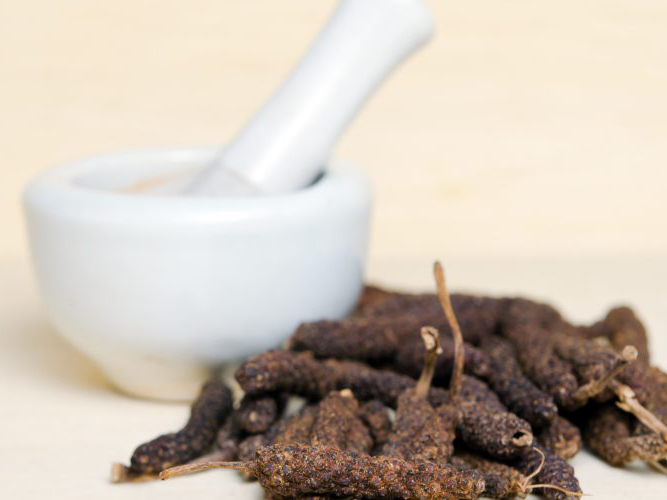Get Easy Health Digest™ in your inbox and don’t miss a thing when you subscribe today. Plus, get the free bonus report, Mother Nature’s Tips, Tricks and Remedies for Cholesterol, Blood Pressure & Blood Sugar as my way of saying welcome to the community!
Research proves that Indian long pepper is a cancer killer

The health benefits of the Indian long pepper have been known for thousands of years. Now research scientists have discovered just how it works.
A native plant to India, long pepper has been known to have many health qualities for thousands of years. It is a flowering vine that is part of Ayurvedic medicine, one of the oldest medical systems known to man. The long pepper’s benefits were even cited by Hippocrates, the ancient Greek physician known as the father of medicine.
What a shame that the medical establishment ignores their Hippocratic oath to “first do no harm,” choosing to use the “cut-and-burn” method of cancer treatment first rather than thousand-years’ knowledge natural cures as the first choice.
In addition to its medical qualities, long pepper is used as a spice in the cooking of many Indian, Indonesian and Malaysian dishes.
Among its health uses in Ayurvedic medicine are as a cure for insomnia, headache, toothache, heart problems, inflamed hemorrhoids, irritable bowel syndrome, liver problems, hiccoughs, to soothe insect bites and reduce obesity. But it has also long been touted for its cancer-killing abilities.
Scientists at the UT Southwestern Medical Center say they have uncovered the chemical process behind long pepper’s anti-cancer properties. The secret lies in a chemical called Piperlongumine (PL), which has shown to attack many cancers including prostate, breast, lung, colon, lymphoma, leukemia, primary brain tumors and gastric cancer.
According to their report, researchers using x-ray crystallography were able to create molecular structures showing how PL is transformed after ingestion into a substance called hPL, an active drug that silences a gene found in abundance in tumors. The gene, GSTP1, produces a detoxification enzyme that is often overly-abundant in cancers.
But they want to capitalize on hPL to enhance drug treatments of cancer, not make use of its natural cancer-fighting abilities.
Another study from Sweden’s Uppsala University Medical College found that PL also stimulates death of cancer cells by inhibiting a genetic process called ubiquitin-proteasome system (UPS). In doing so it targets cancer cells but leaves healthy cells alone.
Editor’s note: Discover how to live a cancer prevention lifestyle — using foods, vitamins, minerals and herbs — as well as little-known therapies allowed in other countries but denied to you by American mainstream medicine. Click here to discover Surviving Cancer! A Comprehensive Guide to Understanding the Causes, Treatments and Big Business Behind Medicine’s Most Frightening Diagnosis!












